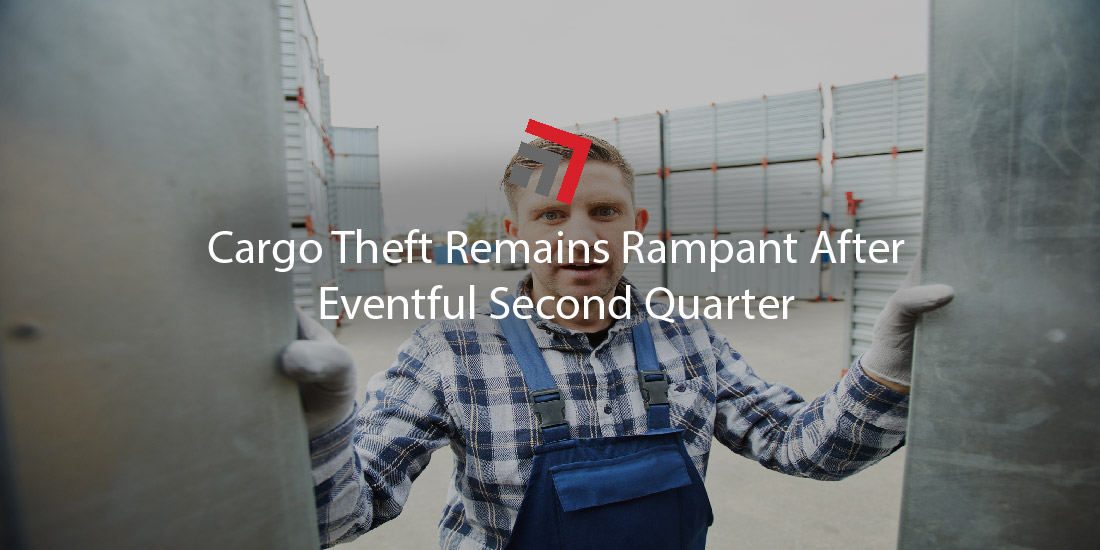Cargo theft’s rise in 2022 was a startling revelation for transport professionals. Not only did incidents of this nature jump last year, strategic, sophisticated, and well-organized thefts have became prominent among these illicit acts.
In the watchdog CargoNet’s 2023 Second Quarter Supply Chain Risk Analysis, cargo theft across the U.S. and Canada increased 57 percent (year-over-year) in the second quarter of 2023.
Of the 582 recorded “theft events” over $44 million has been siphoned industrywide. While that figure alone is enough to make logistics pros hurl double-shot espresso over their keyboards, the real kicker is that the average value of a stolen load has skyrocketed.
CargoNet estimates the load average is around $261,000—nearly a $100,000 increase. This stark increase can be attributed to cunning thieves, a far cry from traditional opportunists, that are premeditated and prepared to take on high-value goods and misdirected shipments.
In other words, victims aren’t being bamboozled just because they didn’t padlock a container or gate. Thieves have been able to intercept freight through more elaborate means, like identify theft, to redirect freight from the rightful recipient.
Fictitious pickups punctuate the rise of cargo theft
These identify-stealing cargo swindlers typically perform what CargoNet refers to as fictitious pickups—which the theft prevention provider reported 127 more cases in 2023 compared year-over-year.
Essentially, this sort of thievery is not done through brute force, but subdued guile. Criminals pretend to be authorized drivers apart of a reputable carrier fleet when they pick up a load.
Los Angeles is reportedly the hotspot of this criminal act, but it’s an issue across the country, particularly in Arizona, Texas, and Georgia.
Thieves appear to have a taste for expensive cargo—solar power generation equipment and automobile supplies are among the top products they swipe. In addition, thieves may also have a taste that gets parched from time to time—an odd target of theirs has also been packaged beverages.
Road soda for the getaway driver?
All parties involved need to be diligent
Without diligent vetting, unassuming victims will have no idea it’s a fraudulent transaction.
To prevent sophisticated thefts, like fictitious pickups, shippers and freight brokers should always verify bids on shipments with trucking carriers through the FMCSA contact information on file.
On the flip end, carriers should also be cautious. CargoNet warns them to be skeptical about new customers that want them to haul a blind shipment delivering to an address different from formal paperwork, like a bill of lading.
Final Thoughts
Of all 50 states, three represented 51 percent of all 582 reported thefts in the second quarter—California, Texas, and Illinois.
Please contact us if you have any questions regarding this topic and how Commerce Express mitigates theft risk. In addition, stay up to date with weekly headlines from both trucking and rail via our Road Map newsletter.
More blogs similar to this:



Recent Comments